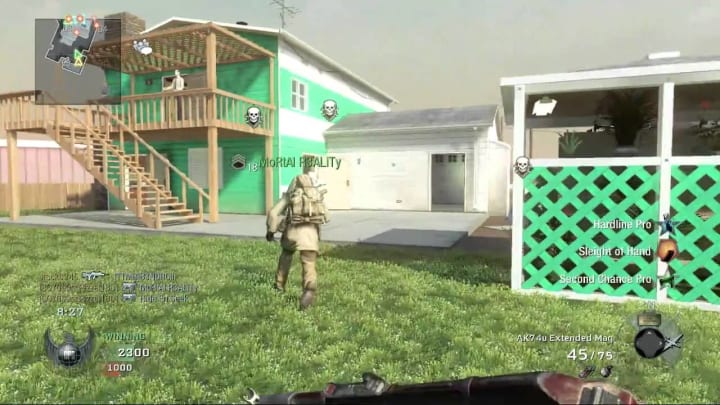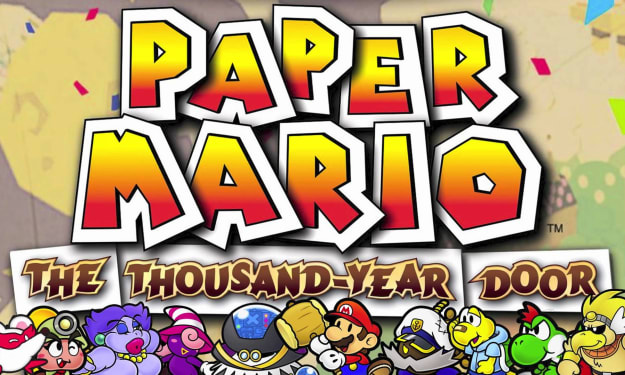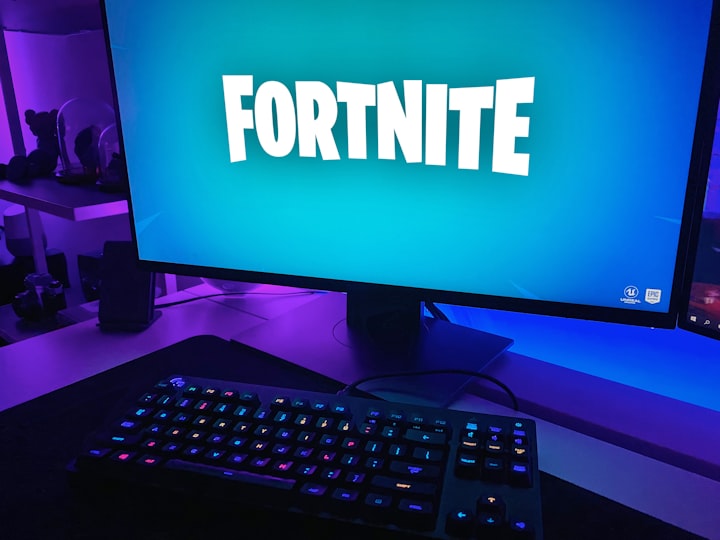Call of Duty
The FPS We Love to Hate

Call of Duty is one of the most influential game series of the last decade. I have very clear memories of Black Ops taking my hometown by storm; it was more or less a cardinal sin to not have played/owned it (even though we were 12) and the hype behind the games that followed it were ridiculously indoctrinated into our culture, if you could even call it that.
Nowadays, Call of Duty seems like a running joke that can’t get itself off the redundancy train. From Normandy to outer space (um, okay?), it doesn’t look like there’s a single battleground that Activision won’t try.
But there’s one thing that’s remained constant throughout, and that’s the unwavering head-butting over whether or not this is a quality series. For every swell comment you hear about the games, there’s bound to be another that wants to drag them into the ground.
You’re probably wondering which category I fall under in terms of supporting or opposing the series. The simplest answer I can give is “I’m not sure,” but that’s a really boring answer. In light of such a boring answer, allow me to switch from “Intro mode” to “Longform mode” once again so you can hear me drone on about this, and hopefully it will satisfy you more than “I don’t know.”

These troops from Infinite Warfare sport high-tech weaponry, jetpacks, and distinctly futuristic armour.
The reason I don’t know if the series is worth defending or not is because I’m not entirely certain what Call of Duty is at this point. In my experience with the games I have played, the overall quality and feel of them were, for me personally, either hit or miss; I’ll defend Black Ops and its sequel to the death, but I’ll also be the first person to write off Modern Warfare 3 and Ghosts. Another big factor is its overall content; in Call of Duty’s early days, you had an intense campaign set during World War II, hardened with dreary colours and a teeth-grinding atmosphere. Nowadays, the focus has shifted to online, team-versus-team shenanigans, and each player looks and plays like a distant relative of Boba Fett.

*sigh*
I think the big problem with recent entries especially is that they were built around the community that sprung up within Black Ops, specifically the folks hovering around the cusp of puberty. After Black Ops, the games seemed to slowly ease into a market that appealed to a demographic that, by-and-large, wasn’t particularly likeable. The core, FPS gameplay was ever-present, of course, but I don’t think it’s outrageous to say that we wouldn’t have seen dabbing, whipping, and the Hotline Bling dance included as celebrations in Black Ops III had the middle schoolers been absent from the Black Ops community.
Features like jet-packs and wall-running are interesting to consider as well. They weren’t bad ideas by any means, and they were fairly well-executed in the games as well. That being said, I think it also represents the identity crisis that Call of Duty had been going through when they were tailoring it to younger demographics. Again, they weren’t bad elements, but it just didn’t really feel like Call of Duty anymore.

Modern Warfare introduced multiplayer in a way that many others have tried to follow.
I would say the pinnacle of the series was between Modern Warfare and Black Ops II. My experience with the Modern Warfare games is fairly limited, and even though it may seem overrated from time to time, there’s no doubting the quality of it. These were the games that introduced the foundations for what made the series so much fun; a reworked multiplayer system that’s obligatory nowadays, completely customizable loadouts, the whole shebang. Then Black Ops and Black Ops II came along and ran away with these ideas, continuing the innovations that Modern Warfare introduced, subsequently keeping the series amongst critical acclaim, and arguably thrusting Call of Duty into the spotlight.
However, I think what highlights this golden era of Call of Duty more than the quality of these games is the drawbacks (for lack of a better word) of the previous and latter eras, as well as the overarching identity crisis I mentioned earlier.
The games before Modern Warfare weren’t bad games by any means, far from it, actually. I would even argue that they were innovative in their own right; moving together with AI-controlled soldiers, various war-era weaponry, and campaigns that dropped you right into an objective-driven battlefield simulation, by golly it was cool!
But, as appreciative of its well-done take on history as I am, games like this are simply not evergreen content; using historical battles and operations in games can be timeless if done properly (which it was), but you can’t keep creating individual games based on just that. There’s only so much history to base games off of, and so Activision would have had to innovate once again if they wanted to create a self-sufficient brand of gaming.
As for the entries following Black Ops II, they were the victims of the identity crisis I touched on. These games mainly took place in the future, they involved jetpacks, wall-running, lasers, and a heavy emphasis on the futuristic setting overall. Again, this was all good and fine, but it really didn’t feel like the games we once knew, and it honestly felt kind of bland; it just didn’t feel like Call of Duty. I think this especially rings true with Call of Duty: WWII's release; by returning to the era that put Call of Duty on the map, it was clear that the future-setting games weren’t made with any real heart, and that the series had gotten too ahead of itself, forgetting what it was as a result.
There are two things I also want to touch on right quick:
1.) One big complaint about Call of Duty has been their rehashing of the same thing over and over again. But I honestly don’t think doing that with the Modern Warfare/Black Ops multiplayer would be a bad thing at all; just mix up the loadout options for each game, keep the formula that is known to work, and you’re golden. It would be a mistake, however, to noticeably rehash each game’s campaign mode, so I think that’s where the redundancy concerns should lay. In a sentence, if it ain’t broke, don’t fix it.
2.) This article likely seems heavily opinionated, and I do apologize if it is that way. What I hope to accomplish with this is to get people thinking about it, create discussion, and to share my overall thoughts on it just for fun. Each era of the franchise certainly has its positives, and I think Activision deserves a tip of the hat for its content, regardless of the indecisive identity and the toxic community that more than likely spurned such an identity.
Now that all of that is out of the way, I’d like to talk about the games in the series that are responsible for any and all interest I ever would have had in the franchise. Due largely in part to my brother, I managed to log a considerable amount of time into each Call of Duty game from Modern Warfare 2 to Black Ops III and, to be quite honest, only two really stuck out to me. Again, they’re all very well-done games, but only two managed to appeal to me. And if you’ve been following along with the article closely, there’s a good-to-fair chance you’ve figured out what they are.
Indeed, Black Ops and Black Ops II are my favourite Call of Duty games by a country mile.
Out of the three settings that the franchise has taken place in (WW2, modern, and future), I prefer the modern era the most, and this is the setting that the two of these games take place in (although Black Ops II is a tad more futuristic, it’s not to the extent of other futuristic titles). It offers an extensive set of weapons, attachments, and gear to try out while also not completely overdoing it with the high-tech techniques we see in the future setting.
More importantly, however, is the difference in the engine that these two games use when compared to other games within this era. This may be completely biased, but I find Treyarch’s games to have significantly smoother controls and easier-to-look-at world designs when compared to their Sledgehammer/Infinity Ward counterparts. I just found there to be much more fluid movements between moving, aiming, firing, weapon switching, and so on. To each their own, of course, but I would recommend comparing the movements of a Treyarch game and a non-Treyarch game.

In the backyard of one of the Nuketown houses. The yards of both houses are common spawn points.
Obviously, this engine made multiplayer seem, in my eyes, superior to other games of this era. However, that alone wouldn’t be enough to make me enjoy multiplayer so much; I needed a plethora of options to e-kill my fellow players. While the weapons weren’t really anything special, I had a lot of fun messing around with their attachments (flamethrowers, anyone?) and the tactical equipment you could bring along into combat. I specifically remember playing on Nuketown with my friends, camera spikes, and trophy systems at the ready, and transforming one of the houses into an impenetrable fortress of sentry guns and explosives. Those were the days!
Speaking of Nuketown, these two games are also home to some of my favourite Call of Duty maps ever. I already spoke about the classic Nuketown, the small neighbourhood with the houses that double as forts. What about Firing Range — the classic Black Ops map with more hideouts and vantage points than either side can manage? Rush — where an abandoned paintball stadium feasts its eyes on a game that’s just a tad more lethal? Hijacked — a luxury cruise turned bloodbath? And of course, there was Nuketown 2025, where Black Ops II players could reinstate their classic Nuketown strategies with new loadouts and equipment. Whether you like the Black Ops games or not, they had their fair share of classic maps.

Sorry guys, you'll have to wait!
But of course, I’d be rightfully hunted down and maimed if I dared to speak about Treyarch’s primary installations if I ignored Zombies. However, I have far too much to say about the Zombies mode in these games, so I advise that you keep an eye out for when that particular analysis/praise comes by!
So overall, I don’t think Call of Duty deserves the hate that it does get. As far as shooters go, they’re all quite well-done, and without much to reasonably complain about. I could certainly do without the community, but that’s no fault of the game itself. Granted, they could’ve shown that particular fanbase a little less love in their more recent entries, but as a whole I think Activision has done a fine job, and with the release of WWII, it seems as though they may finally be back on track.







Comments (1)
COD is great. Especially part of Modern Warfare 2 in a refreshed version. If anyone is looking for this game at a good price, I recommend this online store: https://royalcdkeys.com/products/call-of-duty-modern-warfare-2-2022-cross-gen-edition-us-ps4-5-cd-key